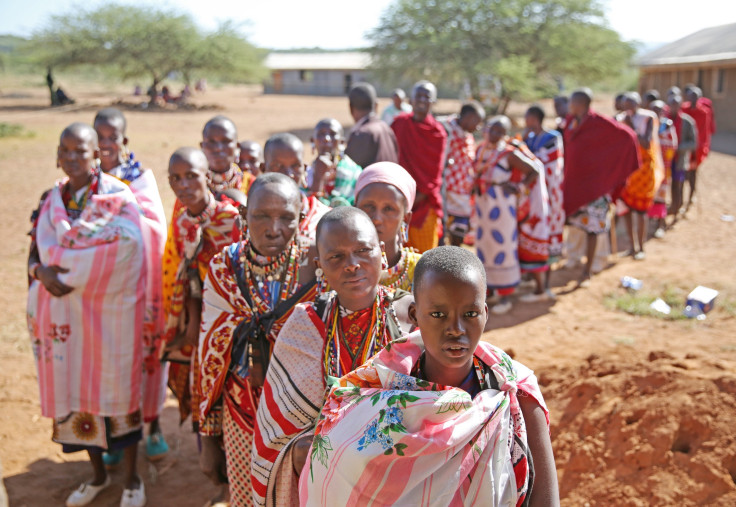Kenya Election: Early Counts Show Uhuru Kenyatta In The Lead, Ahead Of Official Results

Results of the presidential election in Kenya are yet to be released, but an early provisional tally Monday night, based on about 10 percent of ballots cast, shows Uhuru Kenyatta, son of Kenya's founding father and an accused criminal, in the lead.
Reuters reports that, of the 14.3 million registered voters in the East African country of 42 million, turnout was around 70 percent. To accommodate the crowds, many polling stations stayed open late. Some determined voters waited for several hours to cast their ballots.
With only a small fraction of the ballots counted, Kenyatta’s early lead is tenuous. Kenya’s Independent Electoral and Boundaries Commission will continue to release provisional results as the night goes on. If no candidate wins 50 percent of the vote, a runoff election will be held in mid-April.
Kenyatta is the son of Kenya's founder and first president, Jomo Kenyatta. His party is the National Alliance, or TNA. His main opponent, current Prime Minister Raila Odinga, represents the Orange Democratic Party. In this election, as in polls past, tribal affiliations may prove more important than political ones -- Kenyatta is a member of the populous and influential Kikuyu tribe, while Odinga is of the Luo community, like U.S. President Barack Obama's family.
Monday kicked off the first presidential election since 2007, when the results of a contest between Odinga and current President Mwai Kibaki spurred weeks of violence that killed more than 1,200 people and displaced hundreds of thousands. The clashes hinged mainly on tribal loyalties -- this time around, officials cautioned against violence, and security officials were out in full force.
On Monday, about 15 people were reported killed in the southeastern region surrounding the port of Mombasa, though the incident could very well have been a product of separatist conflicts rather than ethnic divisions. Across the rest of the country, there have so far been no reports of election-related fatalities.
If the early ballot counts prove accurate and Kenyatta wins, his next challenge will come not from Nairobi but from the Hague. The International Criminal Court has charged him for his role in inciting violence after the 2007 election. He is expected to begin trial sometime this year. If Kenyatta is elected to lead Kenya and then convicted of crimes against humanity, it would disrupt stability in the country and imperil Kenya’s diplomatic standing.
© Copyright IBTimes 2024. All rights reserved.






















